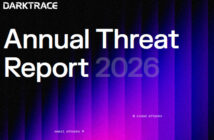
By Jane Lo, Singapore Correspondent
The stratospheric rise of BitCoin, from its humble beginning when 10,000 bought a developer 2 pizzas, to breaking through several resistant levels to trade as high as USD19,000, set off a series of skepticisms amidst a flurry of responses from regulators.
Banking titans, Jamie Dimon of JPMorgan famously said he would “fire in a second” any JPMorgan trader who was trading BitCoin, noting: “It’s against our rules and they are stupid”; and Lloyd Blankfein of Goldman Sacs said “something that moves 20% [overnight]does not feel like a currency. It is a vehicle to perpetrate fraud”. Chief Information Officer of the largest lender in Southeast Asia, DBS, claimed, “We see BitCoin as a bit of a Ponzi scheme,” describing transaction fees as “incredibly expensive,” and “hidden through the crypto-mechanisms.”
Some countries in the Americas (Bolivia, Ecuador) or Asia (Kyrgystan, Bangladesh, Nepal) have outright banned BitCoin trading.
Some see it as a solution to its struggling economy, such as Venezuela which launched an oil-reserves backed Crypto, or North Korea who could be mining digital currency to generate income.
Some have officially recognised BitCoin as an instrument of payment, such as Zug Switzerland since last year; or Japan which moved on from the collapse of its Tokyo crypto exchange Mt. Cox and granted BitCoin the official status in April 2017.
Regulatory actions by some larger economies have been less clear-cut.
China, while demanding the closure of the domestic cryptocurrencies exchanges and outlawing ICOs, has not explicitly banned private citizens’ trading of BitCoin. Russia issued a draft bill to ban cryptocurrencies three years ago but had yet to follow through. In the US, the SEC (Securities and Exchange Commission) declared that ICOs may need registration, but its exchanges CME, CBOE (Chicago Merchantile Exchange, Chicago Board of Exchange) are cleared to offer trading exposure to cryptocurrencies.
Others embrace the innovation by experimenting with BitCoin’s underlying BlockChain and DLT (distributed ledger technology), such as Canada’s Project Jasper or Singapore’s Project Ubin – a DLT payment system prototype for interbank currency exchange, developed by a consortium of Singapore-based banks and R3, with the support of MAS (Monetary Authority of Singapore). Gibraltar is launching GBX (Gibraltar BlockChain Exchange) a new crypto exchange and token sales platform…Click here to read full article.






